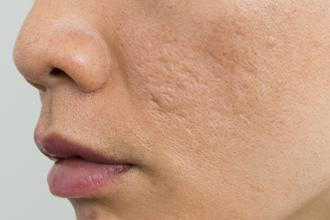
Do you have scarring on your face? Does it make you feel self-conscious? Are you looking for ways to reduce the appearance of these scars? Whether your scars are due to bad acne during your teen years, surgery, or an accident, a dermatologist can provide you with a wide range of options to smooth away superficial scars of the face.
Here are some of the top ways a dermatologist may treat facial scarring:
Dermal Fillers
Sometimes, simply injecting collagen or other substances into indented areas of the skin can help to plump up the scar so that it’s more level with the rest of your face. While it won’t make the scar go away it can make it more noticeable. Since results from injectables are temporary, you’ll need to talk with your dermatologist about how often you should come in for treatment.
Chemical Peels
During a chemical peel, your dermatologist will apply a chemical to the surface of the skin to remove the outermost and often most damaged layer. This can target and reduce the appearance of fine lines, wrinkles, dark spots, and even scarring. Since chemical peels can be tailored to you and your needs, it may even be a good option for someone who is dealing with deeper scarring.
Dermabrasion
This is another option for those dealing with deeper facial scarring. Like chemical peels, dermabrasion also removes the outermost layer of skin with a special device or brush. This system is so powerful it may even get rid of superficial scars while also reducing the appearance of more severe scars.
Laser Resurfacing
This option has become a popular way to treat a wide range of skin imperfections including facial scarring because it can often provide similar results to dermabrasion but with more advanced and precise technology. However, this option may not be ideal for individuals with darker skin or those who are prone to keloid scars.
If you are interested in treatment options that could lessen the appearance of your scars, a dermatologist is the best specialist to speak to about your options. Call your dermatologist today to learn more.
